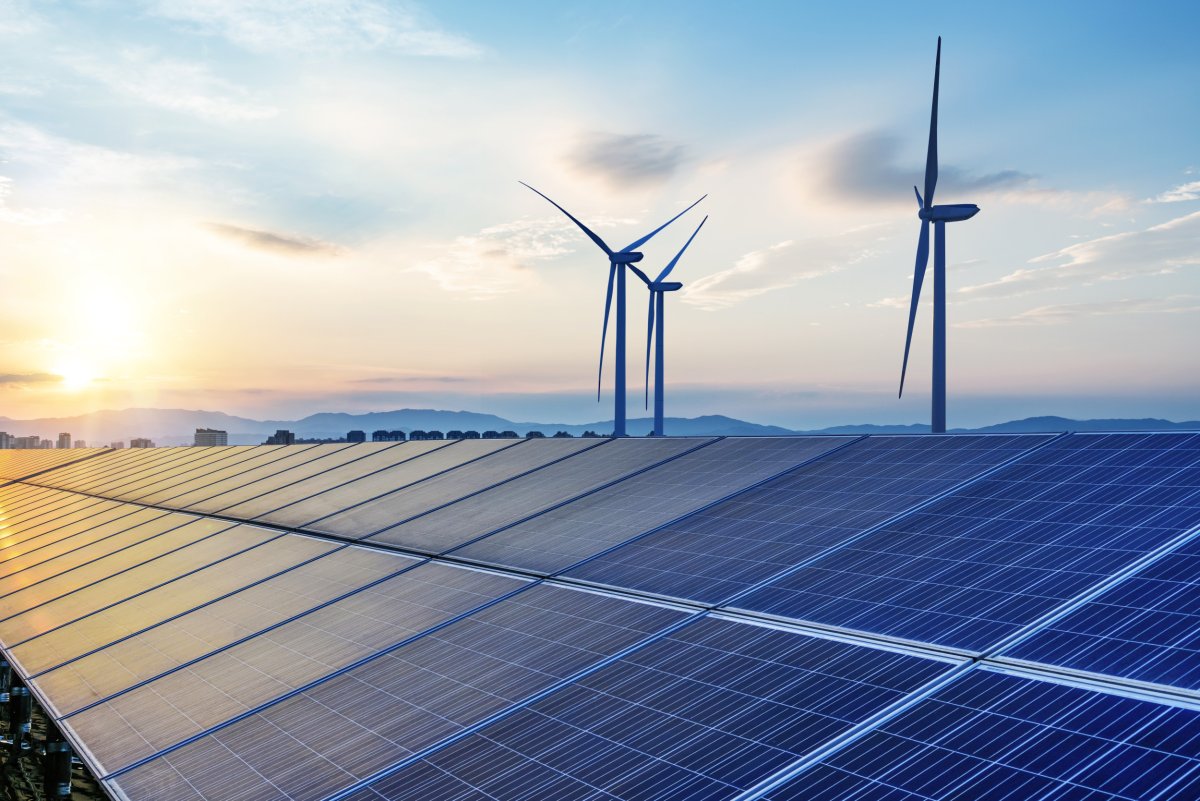United States electrical utilities are striving to get their energy from more and more renewable sources and may achieve becoming entirely renewable by 2060.
While state governments have played somewhat of a role in this push, the utility companies themselves have been leading the march towards a more sustainable future, according to a new paper published in the scientific journal Climatic Change.
"Many people feel the transition on the policy side isn't going fast enough," paper co-author Matthew Burgess, a fellow at Cooperative Institute for Research in Environmental Sciences (CIRES) and University of Colorado Boulder assistant professor, said in a statement. "But the private sector is moving faster than we thought. A lot has to do with technology, costs going down, natural gas replacing coal, and renewables replacing fossil fuels—policy is not the only lever."
States usually enforce some degree of energy policy to mandate how much renewable energy should be used by utility companies, such as Renewable Portfolio Standards (RPS) and Clean Energy Standards (CES). Companies will also usually have their self-reported standards of renewable energy use.
The paper investigated 30 years of data on utility companies' renewable goals and formulated projections of when the utilities were likely to fully decarbonize. The authors found that when state energy targets were compared to the goals of the utility companies, the companies were outpacing state policy and were on track to meet or even exceed the goals of many states.
"What we find, in general, is that the ambitions are similar between states' and utilities' goals. This probably is at least partly due to the states and utilities talking to each other," Burgess told Newsweek.
He said that they do find some states where the utilities are more ambitious than others, including those without any RPS policy, Alabama, Georgia, Wyoming, for example.
This may be due to a combination of factors, including the declining prices of renewables, utilities wanting to get ahead of the game of future policies, and spillover of utilities across multiple states.
"Some utilities operate in multiple states that each have different policies. So, if you're a utility in the Midwest and/or the mountain West, like Xcel, your company-wide ambition might be influenced by relatively ambitious states, which might then feed down to what you're offering less ambitious states because of how it affects your production and investment portfolio," Burgess said.
The paper's authors predict that as long as the companies achieve these goals, the electrical grid will be on track to using entirely renewable energy by 2060.
"In 18 of 26 states with current RPS or CES and 9 of 11 states with expired RPS or CES, utilities' generation and targets meet, nearly meet, or exceed state targets," the paper says. If nuclear energy is included as a renewable in the scenario, this may be achieved by 2050.
"Including nuclear—unlike most RPS and CES policies—makes these results starker: utilities' past and planned generation meets or exceeds 31 of 37 state targets, 14 states without RPS or CES would decarbonize electricity by 2050, and US electricity would also decarbonize by 2050," the authors wrote.

The study also found that many utility companies plan to decarbonize across their whole portfolio, even in states that don't have explicit renewable policies or goals.
"For example, Southern Company has goals to decarbonize," Grace Kroeger, a student researcher in Environmental Studies at CU Boulder, said in a statement. "But the states the company operates in—Georgia, Mississippi, and Alabama—don't have portfolio standards."
These results did differ between red and blue states, however: blue states tended to have stricter renewable policies than red states. However, most states were on track to decarbonize according to the goals of the utilities.
The findings assume that the utilities will achieve their stated goals, which cannot be guaranteed. Thankfully, the data appears to show that they are already moving towards renewables faster than initially planned.
"There's a lot of really interesting stuff happening in the private sector," said Burgess. "The private sector creates interesting decarbonization connections across states, and it has interesting connections to the policy space."
Neither state nor utility company goals, however, are on track to achieve the Biden administration's goal, announced in April, of eliminating all fossil fuels from the entire U.S. energy sector by 2035.
Do you have a tip on a science story that Newsweek should be covering? Do you have a question about renewable energy? Let us know via science@newsweek.com.
Update 12/20/23, 11:59 a.m. ET: This article was updated with comment from Matthew Burgess.
About the writer
Jess Thomson is a Newsweek Science Reporter based in London UK. Her focus is reporting on science, technology and healthcare. ... Read more
To read how Newsweek uses AI as a newsroom tool, Click here.





